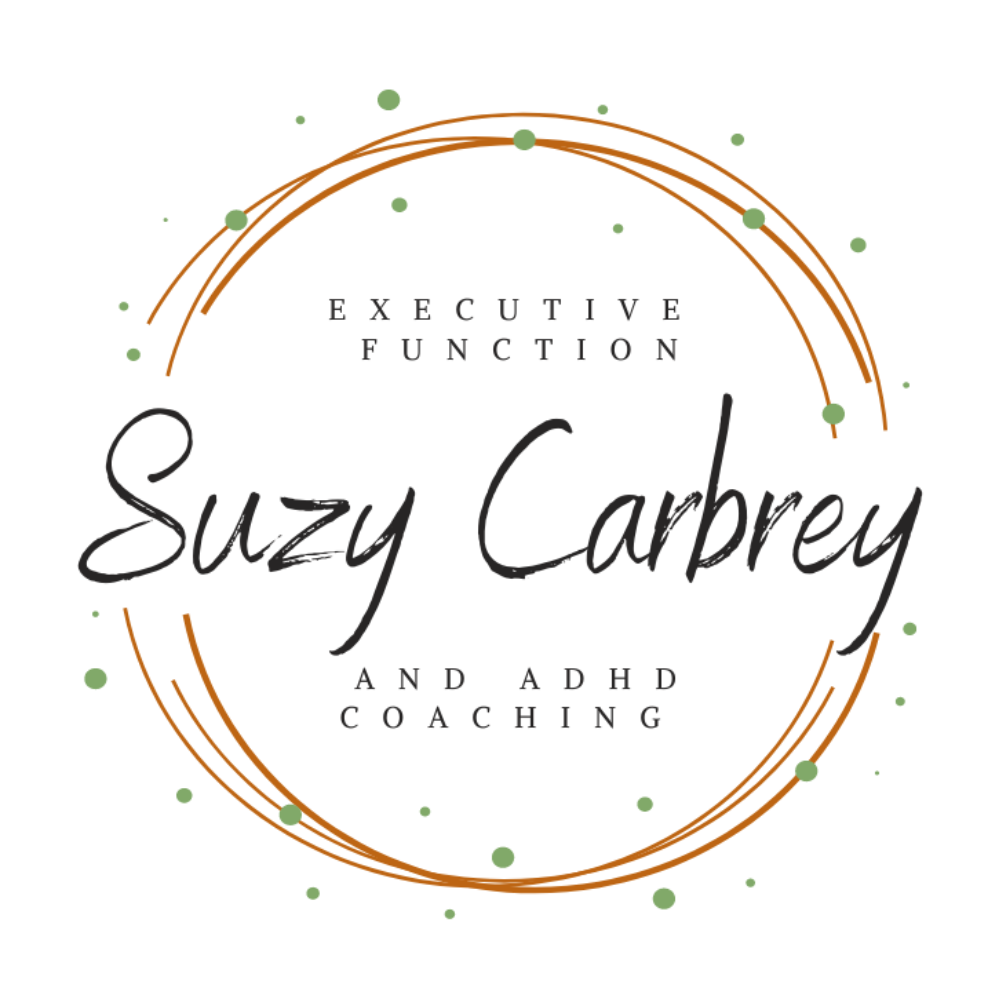Communication is at the core of how we connect with others, express our thoughts and feelings, and navigate daily life. However, for adults with executive functioning challenges—whether due to ADHD, anxiety, or other neurodivergent traits—communication can feel overwhelming, disorganized, or frustrating.
Executive functioning skills such as impulse control, mental flexibility, and emotional regulation play a crucial role in initiating conversations, organizing thoughts, and navigating social interactions. When these skills are impaired, communication struggles can arise. You may find yourself interrupting frequently, losing track of your point mid-conversation, or hesitating to ask for what you need. Social cues might feel confusing, and expressing emotions clearly can be a challenge. These difficulties can lead to misunderstandings, social anxiety, and frustration in both personal and professional settings.
Executive functions help us plan, organize, self-regulate, and adapt in conversations. They shape the way we express ourselves, interpret others, and engage socially. Understanding different communication functions can help you use language more intentionally, advocate for yourself, and feel more in control of your interactions.
The good news? Strengthening executive functioning skills can make communication feel easier and more effective. By using targeted strategies, you can express yourself more clearly, listen more attentively, and engage in conversations with greater ease and confidence.
In this guide, we’ll explore six primary functions of communication—requesting, protesting, describing, asking and answering questions, commenting, and expressing feelings. We’ll also break down how executive functioning challenges impact each area and share practical strategies to improve clarity, confidence, and connection in conversations.
Whether you’re a parent seeking strategies for your child, a professional looking to enhance workplace interactions, or an individual navigating your own communication struggles, these insights will provide actionable tools to help.
How Executive Functioning Affects Communication
Executive functioning skills play a crucial role in communication. These cognitive processes help us:
- Initiate Conversations – Knowing when and how to start a discussion, ask a question, or request help.
- Organize Thoughts – Structuring what we want to say in a logical, clear way.
- Inhibit Impulses – Avoiding interruptions, staying on topic, and listening before responding.
- Shift Perspectives – Understanding others’ viewpoints and adjusting communication accordingly.
- Regulate Emotions – Expressing thoughts without overwhelming frustration, anxiety, or urgency.
- Monitor Responses – Reading social cues and adapting based on feedback from others.
If any of these skills are challenging, communication may feel scattered, awkward, or exhausting. You may find yourself talking too much or too little, struggling to express what’s on your mind, or misunderstanding social cues. Recognizing these challenges can help you develop strategies to communicate more effectively.
Now, let’s explore the six primary functions of communication and how to improve them with executive functioning strategies.

1. Requesting: Asking for What You Need
Requesting is one of the most fundamental communication skills. We request things all the time—whether it’s asking for help, ordering food, seeking clarification, or making a professional or personal request.
Challenges with Requesting
- Difficulty initiating – You may hesitate to ask for what you need, fearing you’ll be a burden.
- Over-explaining – Struggling to be direct and getting lost in too much detail.
- Forgetting to follow up – If someone doesn’t respond, you may forget to check back in.

Strategies to Improve Requesting
- Use clear, direct language – Instead of hinting, try saying, “Can you help me with this?” or “I need more time to process this.”
- Set reminders – If you’re waiting on a response, schedule a follow-up reminder to check back in.
- Rehearse requests in advance – If you struggle with asking, practice with a trusted friend or write out what you want to say.
2. Protesting: Setting Boundaries and Saying No
Protesting is just as important as requesting. It allows you to set boundaries, express discomfort, and reject things that don’t work for you. Whether it’s declining an invitation, speaking up about unfair treatment, or simply expressing a preference, knowing how to protest effectively is a valuable skill.
Challenges with Protesting
- People-pleasing tendencies – Saying yes when you really want to say no.
- Fear of confrontation – Worrying that setting a boundary will upset others.
- Difficulty articulating why – Struggling to explain your reasoning in the moment.
Strategies to Improve Protesting
- Practice boundary-setting phrases – “I appreciate the invite, but I can’t make it this time.” or “I don’t have the bandwidth for that right now.”
- Use “I” statements – Instead of blaming or apologizing, say, “I need some quiet time right now.”
- Pause before responding – Give yourself a moment to think before automatically saying yes.
3. Describing: Organizing Thoughts and Sharing Ideas
Describing helps us explain our thoughts, preferences, and experiences. Whether it’s summarizing a project at work, telling a story to a friend, or giving feedback, being able to describe effectively makes communication smoother.
Challenges with Describing
- Struggling to organize thoughts – Your ideas may feel jumbled, making it hard to explain clearly.
- Getting stuck on details – Losing track of the main point and over-explaining.
- Forgetting key details – Leaving out important context or background information.
Strategies to Improve Describing
- Use visual organizers – Writing notes, making bullet points, or using a mind map before speaking.
- Summarize first, expand second – Start with a brief main idea before adding details.
- Check for understanding – Ask, “Does that make sense?” to ensure your message is clear.
4. Asking and Answering Questions: Engaging in Conversations
Questions are the foundation of conversations. They help us learn, clarify, and connect with others. Answering questions allows us to share information and contribute to discussions.
Challenges with Asking and Answering Questions
- Forgetting what you wanted to ask – Thoughts may slip away before you get a chance to ask.
- Not knowing what to say – Struggling to formulate responses quickly.
- Getting stuck on one question – Hyperfocusing on a detail and missing the bigger conversation.

Strategies to Improve Asking and Answering Questions
- Write down key questions in advance – Especially in meetings or social settings.
- Use conversational fillers – If you need time to think, say, “That’s a great question! Let me think about that.”
- Ask clarifying questions – “Can you explain that another way?” if something isn’t clear.
5. Commenting: Engaging in Social Interaction
Commenting makes conversations richer by adding thoughts, observations, and reactions. Whether it’s expressing interest in a friend’s story or sharing enthusiasm about a topic, commenting keeps interactions lively.
Challenges with Commenting
- Forgetting to respond – Conversations move quickly, and you may miss your chance to comment.
- Struggling with timing – Unsure when to jump into a conversation without interrupting.
- Feeling unsure about what’s appropriate – Over-sharing or under-sharing in different contexts.

Strategies to Improve Commenting
- Use active listening cues – Nod, say “I see” or “That’s interesting” to show engagement.
- Practice mirroring – Match the energy and tone of the conversation to blend in naturally.
- Keep a list of go-to phrases – “That’s really cool!” or “I’d love to hear more about that.”
6. Expressing Feelings: Advocating for Emotional Needs
Expressing feelings is key to emotional well-being and healthy relationships. Whether you need to vent, share excitement, or communicate frustration, being able to express emotions effectively prevents misunderstandings.
Challenges with Expressing Feelings
- Bottling things up – Avoiding emotional expression due to fear of judgment.
- Over-explaining emotions – Struggling to keep emotions concise and clear.
- Not knowing what you’re feeling – Having difficulty identifying emotions in the moment.

Strategies to Improve Expressing Feelings
- Use emotion labels – “I feel frustrated because…” instead of “I don’t know what’s wrong.”
- Check-in with yourself – Take a moment to identify what you’re feeling before speaking.
- Use prompts – “I need to process this out loud” or “Are you looking for advice or just someone to listen?”
Communicate with Confidence: Small Steps, Big Impact
Communication is more than just words—it’s how we connect, advocate for ourselves, and build relationships. When executive functioning challenges make communication feel overwhelming, it’s easy to retreat, second-guess yourself, or feel like you’re constantly playing catch-up in conversations. But the good news is that communication is a skill, and like any skill, it can be strengthened with practice, awareness, and the right strategies.
By understanding the six primary functions of communication—requesting, protesting, describing, asking and answering questions, commenting, and expressing feelings—you now have a framework to navigate conversations with more clarity and control. You don’t have to master everything at once; even small changes can lead to meaningful progress.
- If asking for what you need feels difficult, start with simple, direct phrases and set reminders to follow up.
- If setting boundaries feels uncomfortable, practice short, polite refusals that honor your limits.
- If organizing your thoughts is a challenge, experiment with visual organizers or summarizing before expanding.
- If social interactions feel overwhelming, focus on active listening and using conversational cues.

With time and effort, these adjustments will become second nature. Every time you pause before responding, advocate for yourself or use a new strategy, you’re strengthening your communication skills—and your confidence.
Communication isn’t about being perfect. It’s about being intentional, expressing yourself in a way that feels authentic, and finding connection in the process. Keep moving forward, one conversation at a time, and trust that your voice matters.
Improving communication is about growth. Each time you pause to gather your thoughts, assert a boundary, or clarify a message, you’re making progress. Over time, these small shifts build confidence, clarity, and connection. Keep practicing—you’re strengthening your communication skills with every step forward.
Learn more with Online Coaching for Executive Functioning / ADHD
Ready to gain control and enhance your executive functioning? As an experienced and compassionate coach, I specialize in providing support for executive functioning and ADHD. To embark on your journey, please reach out to me at 708-264-2899 or email hello@suzycarbrey.com to schedule a FREE 20-minute discovery call consultation.
With a background as a speech-language pathologist, I have a strong foundation in executive functioning coaching. My graduate degree program in SLP placed a significant emphasis on cognition, including executive functions, and I have years of experience in medical rehabilitation, providing cognitive-communication therapy. Additionally, I have completed an ADHD Services Provider certification program, I am Solutions-Focused Brief Therapy Diamond Level 1 certified and I am trained in the Seeing My Time® executive functioning curriculum.
Experience the convenience and effectiveness of online coaching, backed by studies that demonstrate equal results to in-person services. Parents, professionals, and emerging adults love the convenience and privacy of receiving coaching from their own homes.
Whether you reside in Chicago, Milwaukee, Indianapolis, Kansas City, or anywhere else around the globe, I am here to assist you. Schedule your discovery call consultation today, and I eagerly anticipate the opportunity to work with you!
Please note that although I am a certified speech-language pathologist, all services Suzy Carbrey LLC provides are strictly coaching and do not involve clinical evaluation or treatment services. If you require a formal speech therapy evaluation and treatment, please inform me, and I can provide appropriate recommendations.

